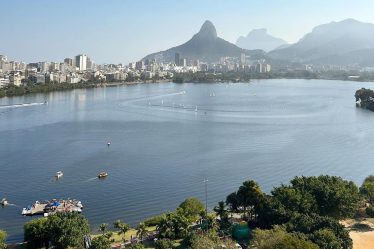
By Valmir Gomes
For a long time, studying outside Brazil as part of basic or higher education was something reserved only for those who had the purchasing power to do so. Or, more importantly, to those who have access to information on how to be part of this reality. In fact, this access remains limited today, when we think proportionally in relation to the entire Brazilian population. However, today we live in a globalized and extremely connected world, which makes us much more aware of the possibilities for study and professional growth offered by foreign educational institutions. Today, more than ever, it is necessary for us to think about a more individualized process for each student and their academic and professional ambitions.
There are some fundamental points that need to be carefully analyzed so that the student can make an assertive decision: country, university and course of choice, study of the school community and study of possible future benefits.
Let's start with choosing the country, however, the selection process does not necessarily follow this order. In this context, the starting point for choosing a university is to analyze the destination country. It is important to observe the culture of the country of choice, the region where the possible universities are located, the climate of that region, the reception of foreigners in that culture and the costs of living in that country. All of these points need to be evaluated to prevent the student from choosing a country that does not match the family's profile. It is not uncommon for students to move to countries with a very cold climate, for example, and not adapt to this new reality.
It is also important to understand that each country has a specific selection process for entry into higher education. In my career, I have always helped schools, families and students to have this understanding so that we can plan an individual plan according to each family's plan. The options are many and varied, in the latest ranking of international universities, for example, among the 30 best positioned countries in the world, are the USA, England, France, Switzerland, Singapore, Japan, China, Australia, Canada and China (Hong Kong ).
After defining the possible countries, the student needs to research the main universities of interest. I always invite students and parents to do a more in-depth study. The most common thing is for families to look for the most renowned universities. For example, names like Harvard, Stanford, Princeton, MIT in the USA, or Oxford, Cambridge in England, are universities that, in fact, can offer great gains for students who study there, but we need to understand that they are not the only possibilities, not to mention that admission to these universities is extremely competitive.
In fact, in the USA and England alone, for example, there are thousands of other universities in a wide variety of regions and with courses as well, if not better ranked than the courses at these institutions. In the USA alone, we have 5,999 higher education institutions that vary by region, specialty, cost, possibilities, scholarships for foreigners and relationship with the job market.
The ideal course
Even before choosing possible countries and universities, it is necessary to choose the course or possible areas of activity. Currently, we have several other centers of excellence in higher education around the world, as mentioned above. When we focus on specific areas, this range of opportunities expands even further.
Let’s analyze the case of artificial intelligence. In the latest ranking released by US News, an American company that generates reports on the levels of universities in the United States and globally by area, among the 10 institutions with the best artificial intelligence programs there are 5 Chinese (among them the #1 in the world in this area, which is Tsinghua University), 1 from Hong Kong, 2 from Singapore and 2 from Australia.
Interestingly, if we change the focus to Business and Economics, the USA leads with 8 universities (#1 being Harvard), 1 English and 1 Dutch. The focus on the course will bring the possibility of expanding the range of options. It is important to highlight that, even at universities in countries that do not speak English, there are courses in the English language to bring greater internationalization to your campus.
Having an idea of the possible courses, countries and universities, the next step involves delving deeper into the school community. What is the percentage of foreigners at this university? What languages are spoken on campus? How do the dorms work? What student support services are available at the university? Does the university offer psychological support, career support, internship opportunities, continuing education opportunities? Does the student see themselves flourishing in this educational environment? All of these questions help guide the student and their family to better calibrate expectations and understand what to expect from the learning experience at the institution of choice.
Having access to all this information equips families to make an informed decision about their child's academic destiny, the potential gains from exposure to a new culture, a new academic environment, and the possibility of developing a network of contacts that will help you in your adult life.
School participation
All these studies must be part of an individualized vocational monitoring process where students will begin to study possibilities, get to know themselves better and understand what they want, together with their families, as it is a family investment. In this process, students need to do reverse planning together with the school.
Both during the selection of courses, universities and countries, and after the decision has been made, the school must help the student to enter the university of their choice, whether at a Portuguese university using the ENEM score, or by going through the process selection process for an American university that requires specific preparation (international standardized tests, analysis of academic records, letters of recommendation from professors, letter of conviction written by the student to explain the motivation behind their interest in that university, among other prerequisites) .
To better prepare students for this decision making, the school needs a vocational monitoring program to create official means to inform and guide students in the process of applying to foreign universities. Many universities want international students to increase the cultural diversity of the campus and provide opportunities for students with specific skills, which facilitates the scholarship process. This process must also be meticulously studied and monitored by the school and guardians.
Extension activities
Examples of activities suggested for this monitoring to be successful are trips to university fairs, summer programs in the desired communities focusing on high school students, online courses, online contact with admissions officers at foreign universities, contact with students who are attending universities (always through the school, for safety reasons), and also high school courses in the area of interest. This entire process needs to be done individually and intentionally, in partnership with students and families throughout the years of high school.
Universities want talent to choose them. Therefore, students need to know that their entire high school career matters, as it will serve as evidence of their commitment to learning, preparation for university life and demonstrate their growth potential. When the school accompanies and guides students on their paths, we can ensure that they are able to go to the university of their choice, whether in Brazil or anywhere in the world.
*Valmir Gomes is an educator and educational leader with experience in international schools in Brazil, China and the USA. He has been a teacher in Elementary School 1, Elementary School 2 and High School. He has taught English Language, Humanities, Technology and Digital Design courses. In leadership positions, he has been coordinator of secondary and elementary education 2, specialist in educational technology and, more recently, Academic Dean at an international school in the city of Shenzhen in China, Deputy General Director at an international school in Washington, DC, USA and, currently Director of Intelligence and Innovation at Colégio Everest Brasília. He has a degree in Portuguese/English Literature from Uniceub, a postgraduate degree in school management and a European Technology teaching certificate. He also has a master's degree in education and a certificate in educational leadership from the State University of New York. Some of his most recent educational experiences include Escola das Nações, Escola americana de Brasília, Ningbo International School, Whittle School & Studios Shenzhen, Whittle School & Studios Washington DC and independent consulting projects in the USA and Brazil.


